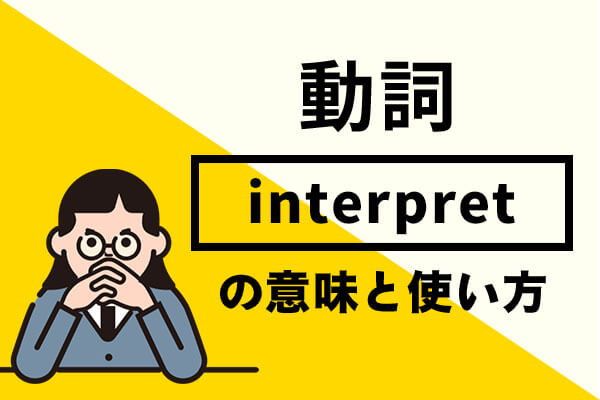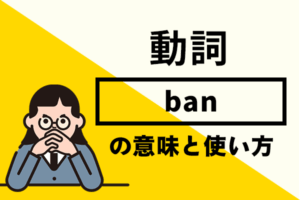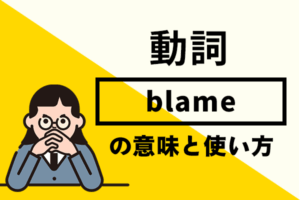英語学習者の多くが「interpret」という単語を見たとき、「通訳する」という意味だけを思い浮かべますが、実はこの動詞にはもっと幅広い使い方があります。
特にTOEICや英検、ビジネス英語では頻出の重要語彙であり、「translate(翻訳する)」との違いを正しく理解することが求められます。
この記事では、interpretの正確な意味とニュアンス、類義語との違い、実践的な例文、そしてネイティブがよく使う自然な表現まで、徹底的に解説します。
TOEICや英検対策にも役立つ練習問題も用意していますので、この記事を読み終える頃には、interpretを自信を持って使いこなせるようになるでしょう。
interpretのコアイメージ
interpretの語源はラテン語の「interpretari(説明する、仲介する)」に由来します。
コアイメージは「何かに意味を与える・橋渡しをする」です。
言語の通訳、データの解釈、芸術作品の解釈など、あるものを別の形で理解可能にする行為全般を表します。
単なる言葉の置き換えではなく、意味を汲み取って伝える・理解するというニュアンスが重要です。
interpretの基本情報
| 項目 | 内容 |
|---|---|
| 単語 | interpret |
| 発音記号 | /ɪnˈtɜːrprɪt/(インタープリット) |
| 品詞 | 動詞 |
| 語源 | ラテン語「interpretari(説明する)」 |
| 活用形 | 英語の形 | 発音記号(カナ) |
|---|---|---|
| 原形 | interpret | /ɪnˈtɜːrprɪt/(インタープリット) |
| 三人称単数現在形 | interprets | /ɪnˈtɜːrprɪts/(インタープリッツ) |
| 過去形 | interpreted | /ɪnˈtɜːrprɪtɪd/(インタープリティッド) |
| 過去分詞形 | interpreted | /ɪnˈtɜːrprɪtɪd/(インタープリティッド) |
| 現在分詞形 | interpreting | /ɪnˈtɜːrprɪtɪŋ/(インタープリティング) |
※interpretは動詞として使われるのが最も一般的です。名詞形はinterpretation(解釈・通訳)、人を表す名詞はinterpreter(通訳者・解釈者)となります。
この記事では動詞用法を中心に解説します。
発音・アクセントの注意
interpretの発音で注意すべき点は以下の通りです。
アクセント位置:
第2音節の「ter」にアクセントがあります:in-TER-pret
日本語の「インタープリット」という発音で第2音節を強く読むイメージです。
母音の発音:
第1音節は /ɪ/(短い「イ」)
第2音節は /ɜːr/(「アー」に近い音)
最後の音節は /ɪt/(短い「イット」)
派生語の発音変化:
interpreter(通訳者):/ɪnˈtɜːrprɪtər/(インタープリター)
interpretation(解釈):/ɪnˌtɜːrprɪˈteɪʃn/(インタープリテイション)※アクセント位置が変わる
interpretationではアクセントが後ろに移動する点に注意が必要です。
interpretの意味とニュアンス
interpretには大きく分けて3つの主要な意味があります。
通訳する・口頭翻訳する
最も一般的な意味で、ある言語を別の言語に口頭で変換することを指します。
書面の翻訳(translate)と区別され、リアルタイムで言葉を変換する行為を表します。
She interpreted the CEO’s speech from English to Japanese.
彼女はCEOのスピーチを英語から日本語に通訳した。
Can you interpret for me during the meeting?
会議中に通訳してもらえますか?
He works as a professional interpreter at international conferences.
彼は国際会議でプロの通訳者として働いている。
解釈する・理解する
言葉、行動、データ、芸術作品などに意味を見出し、理解することを表します。
客観的な事実に主観的な意味づけをするニュアンスがあります。
How do you interpret this data?
このデータをどう解釈しますか?
His silence was interpreted as agreement.
彼の沈黙は同意と解釈された。
Different people interpret the law differently.
人によって法律の解釈は異なる。
I interpreted her smile as a sign of approval.
私は彼女の笑顔を承認のサインと解釈した。
演じる・表現する(芸術)
音楽や演劇などで、作品を自分なりに表現することを指します。
楽譜や台本を単に再現するのではなく、演奏者・俳優の解釈を加えて表現するニュアンスです。
The pianist interpreted Chopin’s nocturnes beautifully.
そのピアニストはショパンの夜想曲を美しく演奏した。
Each actor interprets the role differently.
各俳優はその役を異なる形で演じる。
She interpreted the song in her own unique style.
彼女はその曲を独自のスタイルで表現した。
interpretの使い方
interpretは他動詞として使われることが多く、いくつかの典型的な構文があります。
interpret A as B(AをBと解釈する)
最も頻出する構文で、何かを特定の意味として理解することを表します。
I interpret his comments as criticism.
私は彼のコメントを批判と解釈する。
The court interpreted the clause as invalid.
裁判所はその条項を無効と解釈した。
Don’t interpret my words as a threat.
私の言葉を脅しと解釈しないでください。
interpret A for B(BのためにAを通訳する)
誰かのために通訳する場合に使う構文です。
She interpreted the presentation for the foreign visitors.
彼女は外国人訪問者のためにプレゼンテーションを通訳した。
Could you interpret this document for me?
この文書を通訳してもらえますか?
He interpreted the negotiations for both parties.
彼は両者のために交渉を通訳した。
interpret from A to B(AからBに通訳する)
言語間の変換を明示する構文です。
She interprets from Spanish to English.
彼女はスペイン語から英語に通訳する。
He can interpret from Japanese to Chinese.
彼は日本語から中国語に通訳できる。
受動態での使用
interpretは受動態で「解釈される」という意味でよく使われます。
His actions were interpreted as hostile.
彼の行動は敵対的と解釈された。
The results can be interpreted in several ways.
その結果はいくつかの方法で解釈できる。
The poem has been interpreted differently by critics.
その詩は批評家によって異なる解釈をされてきた。
interpretの句動詞
interpretを使った典型的な句動詞は存在しません。
interpretは単独で使用されることが多く、前置詞との組み合わせは主に「interpret as」「interpret for」「interpret from…to」など、上記の「使い方」セクションで解説した構文パターンとなります。
代わりに、interpretと一緒によく使われる重要な前置詞の組み合わせを確認しておきましょう。
interpret correctly/incorrectly(正しく/誤って解釈する)
例:It’s important to interpret the data correctly.
データを正しく解釈することが重要だ。
interpret literally/figuratively(文字通り/比喩的に解釈する)
例:Don’t interpret his words too literally.
彼の言葉を文字通りに解釈しすぎないで。
interpretのコロケーション
| コロケーション | 意味 | 例文 |
|---|---|---|
| interpret data | データを解釈する | Scientists interpret data from experiments. |
| interpret a dream | 夢を解釈する | She tried to interpret her strange dream. |
| interpret the law | 法律を解釈する | Judges interpret the law in court. |
| interpret results | 結果を解釈する | We need time to interpret the test results. |
| interpret a text | 文章を解釈する | Students learned to interpret ancient texts. |
| interpret silence | 沈黙を解釈する | How should we interpret his silence? |
| interpret simultaneously | 同時通訳する | She can interpret simultaneously at conferences. |
| interpret consecutively | 逐次通訳する | He interprets consecutively during meetings. |
| interpret a role | 役を演じる | The actor interpreted Hamlet brilliantly. |
| interpret findings | 調査結果を解釈する | Researchers interpret their findings carefully. |
interpretを使った例文(シーン別)
試験でよく出る例文
The study’s findings can be interpreted in multiple ways.
その研究の調査結果は複数の方法で解釈できる。
How do you interpret this passage from Shakespeare?
シェイクスピアのこの一節をどう解釈しますか?
Scientists must interpret experimental data objectively.
科学者は実験データを客観的に解釈しなければならない。
The constitutional provision has been interpreted differently over time.
その憲法規定は時代とともに異なる解釈をされてきた。
She interpreted the CEO’s remarks as a warning.
彼女はCEOの発言を警告と解釈した。
日常会話で使う例文
I think you’re interpreting what I said the wrong way.
私の言ったことを誤解していると思う。
Can you interpret this email for me? It’s in German.
このメールを訳してくれますか?ドイツ語なんです。
How would you interpret her reaction?
彼女の反応をどう解釈する?
I interpreted his nod as yes.
彼のうなずきをイエスと解釈した。
Different people interpret body language differently.
人によってボディランゲージの解釈は異なる。
ビジネス文書・メールで使う例文
Please interpret the market trends and provide recommendations.
市場動向を解釈し、推奨事項を提供してください。
We need a professional to interpret during the negotiation.
交渉中に通訳するプロが必要です。
The board interpreted the quarterly results as positive.
取締役会は四半期の結果を好意的に解釈した。
Our legal team will interpret the contract terms.
法務チームが契約条件を解釈します。
How should we interpret the client’s feedback?
顧客のフィードバックをどう解釈すべきでしょうか?
An interpreter will be available for the international conference call.
国際電話会議には通訳者が待機します。
interpretの類義語・関連語
| 単語 | 品詞 | ニュアンス・解説 |
|---|---|---|
| translate | 動詞 | 翻訳する(書面での言語変換) |
| explain | 動詞 | 説明する(分かりやすく伝える) |
| understand | 動詞 | 理解する(意味を把握する) |
| decode | 動詞 | 解読する(暗号などを解く) |
| construe | 動詞 | 解釈する(やや形式的) |
| render | 動詞 | 表現する・翻訳する |
| elucidate | 動詞 | 解明する(形式的) |
「interpret」と似た意味を持つtranslateの意味と使い方や、説明することを表すexplainの意味と使い方も合わせてチェックすると理解が深まります。
混同されやすい語との違い
interpret vs translate
特徴と違い
interpret:
主に口頭での言語変換(通訳)を指します。リアルタイムで言葉を変換する行為や、何かの意味を解釈する行為全般を表します。
「意味を汲み取る」というニュアンスが強く、主観的な解釈を含むことがあります。
translate:
主に書面での言語変換(翻訳)を指します。テキストを別の言語に変換する行為で、より客観的・正確な変換を意味します。
「言葉を置き換える」というニュアンスが強く、原文に忠実であることが求められます。
例文で比較
She interpreted the speech from English to Japanese.
彼女はスピーチを英語から日本語に通訳した。(口頭・リアルタイム)
She translated the document from English to Japanese.
彼女は文書を英語から日本語に翻訳した。(書面・後から)
He interprets contemporary art.
彼は現代アートを解釈する。(意味を見出す)
The software translates text automatically.
そのソフトウェアはテキストを自動的に翻訳する。(言語変換のみ)
使い分けのポイント
口頭・リアルタイムの言語変換 → interpret
書面・テキストの言語変換 → translate
意味の解釈・理解 → interpret
正確な言葉の置き換え → translate
interpret vs explain
特徴と違い
interpret:
何かに意味を与える、自分なりの理解を示すというニュアンスです。
主観的な解釈が含まれ、複数の解釈が可能な場合に使われます。
explain:
何かを分かりやすく説明する、明確にするというニュアンスです。
客観的な事実や理由を伝えることに重点があります。
例文で比較
How do you interpret this poem?
この詩をどう解釈しますか?(個人的な理解を求める)
Can you explain what this poem means?
この詩が何を意味するか説明してもらえますか?(客観的な説明を求める)
She interpreted his behavior as nervousness.
彼女は彼の行動を緊張と解釈した。(主観的判断)
She explained why he was behaving that way.
彼女はなぜ彼がそのように振る舞っているのか説明した。(原因の説明)
使い分けのポイント
主観的な意味づけ → interpret
客観的な説明 → explain
複数の理解が可能 → interpret
明確な理由・事実 → explain
interpret vs understand
特徴と違い
interpret:
積極的に意味を見出す、分析するという能動的な行為です。
何かを別の形で表現したり、意味を与えたりするプロセスを含みます。
understand:
意味を把握する、理解するという状態や結果を表します。
解釈のプロセスというより、理解という最終的な状態に焦点があります。
例文で比較
I interpret the data as showing a positive trend.
私はそのデータを好ましい傾向を示していると解釈する。(分析・意味づけ)
I understand what the data shows.
私はそのデータが何を示しているか理解している。(把握している)
Scholars interpret ancient texts differently.
学者たちは古代の文献を異なる形で解釈する。(学問的分析)
Do you understand this text?
このテキストを理解していますか?(内容が分かるか)
使い分けのポイント
能動的な分析・意味づけ → interpret
受動的な理解・把握 → understand
専門的・学問的な解釈 → interpret
一般的な理解 → understand
試験・ビジネス頻出度
TOEIC
頻出度:★★★★☆(多い)
TOEICでは特にPart 7(読解問題)とPart 5(文法問題)で頻繁に出題されます。
ビジネスシーンでのデータ解釈、通訳サービス、契約書の解釈などの文脈で登場します。
よく出題される形式
語彙問題:
「interpret as」「interpret data」などのコロケーションが問われます。
translateとの使い分けも頻出です。
読解問題:
「The results can be interpreted as…」のような受動態での使用や、
「How should we interpret these findings?」といった疑問文で登場します。
リスニング問題:
会議での通訳サービスに関する会話や、データ分析の議論で使われます。
英検
頻出度:★★★☆☆(中程度)
英検では準1級以上で出題されることが多く、特にライティングとスピーキングで使える重要語彙です。
級別の出題傾向
準1級:
読解問題で「解釈する」という意味で登場。
文学作品や調査結果の解釈に関する文脈で使われます。
1級:
エッセイやスピーチで、データや状況の分析を述べる際に有効。
「This can be interpreted as evidence that…」のような形式が使えます。
ビジネス英語
頻出度:★★★★★(非常に多い)
ビジネス英語では必須の動詞で、以下のような場面で頻繁に使用されます。
使用場面
会議・プレゼンテーション:
データや市場動向の解釈を説明する際に使います。
“How do we interpret these market trends?”
通訳サービス:
国際会議や商談で通訳が必要な場面。
“We’ll need someone to interpret during the negotiation.”
契約・法務:
契約条項や法律の解釈について議論する際。
“The legal team will interpret the contract terms.”
レポート・分析:
調査結果や財務データの分析報告で使用。
“The quarterly results are interpreted as positive signs.”
ネイティブがよく使う自然な表現
日常会話での表現
I think you’re misinterpreting me.
誤解していると思うよ。
「misinterpret」は「誤解する・誤って解釈する」という意味で、日常会話で頻繁に使われます。
相手が自分の意図を正しく理解していないときに使う自然な表現です。
Don’t read too much into it.
深読みしすぎないで。
これは「interpret too much」の代わりに使われるカジュアルな表現です。
相手が何かを過剰に解釈しているときに使います。
How should I take that?
それをどう受け取ればいいの?
「How should I interpret that?」のカジュアルバージョンです。
相手の発言や行動の意図を確認したいときに使います。
ビジネスでの自然な表現
Let me get an interpreter on the line.
通訳者を電話に出させます。
国際電話会議などで通訳が必要な際の実務的な表現です。
The data speaks for itself.
データは明白だ。
データの解釈が不要なほど明確な場合に使う表現です。
「interpret」を使わずに「解釈の余地がない」ことを伝えます。
We need to read between the lines.
行間を読む必要がある。
表面的な意味だけでなく、隠された意図を解釈する必要がある場合の慣用表現です。
フォーマルな場面での表現
This provision shall be interpreted in accordance with international law.
本規定は国際法に従って解釈されるものとする。
契約書や法的文書で使われる典型的な表現です。
The findings warrant careful interpretation.
その調査結果は慎重な解釈を要する。
学術的・専門的な文脈で使われる格式高い表現です。
Simultaneous interpretation will be provided.
同時通訳が提供されます。
国際会議やフォーマルなイベントでの標準的な表現です。
interpretのよくある間違い
translateとの混同
❌ Can you interpret this letter for me? I need it in writing.
✅ Can you translate this letter for me? I need it in writing.
解説:書面での翻訳が必要な場合は「translate」を使います。
「interpret」は主に口頭での通訳を指します。
❌ She translated the speech at the conference.
✅ She interpreted the speech at the conference.
解説:会議でのリアルタイムな言語変換は「interpret」です。
「translate」は書面での作業を指します。
前置詞の誤用
❌ I interpret his silence like agreement.
✅ I interpret his silence as agreement.
解説:「interpret A as B(AをBと解釈する)」の形で「as」を使います。
「like」は使いません。
❌ She interprets to Japanese from English.
✅ She interprets from English to Japanese.
解説:言語の順序は「from A to B」となります。
逆順にしないよう注意しましょう。
文法的な誤り
❌ The data interprets clearly.
✅ The data can be interpreted clearly.
解説:「interpret」は他動詞なので、目的語が必要です。
データが自ら解釈することはできないため、受動態を使います。
❌ I’m interpreting what you mean.
✅ I understand what you mean. / I interpret your words as…
解説:単に「理解している」という意味なら「understand」が自然です。
「interpret」は特定の意味づけをする場合に使います。
意味の取り違え
❌ The musician interpreted the song. (単に歌った場合)
✅ The musician sang the song. / The musician performed the song.
解説:単に演奏・歌唱する場合は「perform」「sing」「play」を使います。
「interpret」は独自の解釈を加えた表現をする場合に使います。
❌ I interpreted English for 5 years at university.
✅ I studied interpretation for 5 years at university.
解説:通訳を学んだことを言う場合は「study interpretation」です。
「interpret」は実際に通訳する行為を指します。
interpretの理解度チェック
穴埋め問題(5問)
1. The committee ______ the results as a sign of progress.
(委員会はその結果を進歩の兆候と解釈した)
2. Can you ______ for me during the meeting? The client only speaks French.
(会議中に通訳してもらえますか?顧客はフランス語しか話しません)
3. Different scholars ______ the ancient text differently.
(学者によってその古代の文献の解釈は異なる)
4. Her silence was ______ as consent.
(彼女の沈黙は同意と解釈された)
5. The pianist ______ Beethoven’s sonata with great emotion.
(そのピアニストはベートーベンのソナタを感情豊かに演奏した)
選択肢問題(5問)
1. Please ______ this document from Japanese to English.
a) interpret
b) translate
c) explain
d) understand
2. How should we ______ the customer’s feedback?
a) interpret
b) translation
c) interpreter
d) interpretative
3. She works as a professional ______ at the UN.
a) interpret
b) interpretation
c) interpreter
d) interpreting
4. The data can be ______ in multiple ways.
a) interpret
b) interprets
c) interpreting
d) interpreted
5. Don’t ______ my words as criticism.
a) interpret
b) translation
c) translator
d) translating
解答
穴埋め問題:
1. interpreted(過去形で受け身ではない能動態)
2. interpret(依頼文なので原形)
3. interpret(現在の一般的事実なので現在形)
4. interpreted(受動態・過去形)
5. interpreted(芸術的表現の過去形)
選択肢問題:
1. b) translate(書面の翻訳なのでtranslate)
2. a) interpret(解釈するという動詞が必要)
3. c) interpreter(通訳者という名詞が必要)
4. d) interpreted(受動態の形が必要)
5. a) interpret(「AをBと解釈する」の構文)
interpretのコーパス実例
実際の英語使用例から、interpretがどのように使われているかを見ていきましょう。
新聞記事:The New York Times
The Supreme Court will interpret the constitutional provision in its upcoming session.
最高裁判所は次回の会期でその憲法規定を解釈する予定だ。
法律分野での典型的な使用例です。裁判所が法律や憲法を解釈する場面で頻繁に使われます。
Economists interpret the employment data as evidence of economic recovery.
エコノミストたちはその雇用データを経済回復の証拠と解釈している。
専門家が統計データを分析・解釈するビジネス記事での使用例です。
日常会話:映画のセリフ
You’re interpreting this all wrong. I never said that.
それは全部誤解だよ。そんなこと言ってない。
(映画『The Social Network』より)
日常会話での誤解を指摘する場面で使われています。「misinterpret」の代わりに「interpret wrong」という表現も一般的です。
How am I supposed to interpret that?
それをどう受け取ればいいんだ?
(映画『The Devil Wears Prada』より)
相手の曖昧な発言や態度に対して、その意図を尋ねる場面での使用例です。
ビジネススピーチ:TED Talk
We need to learn how to interpret data in context, not just look at numbers.
私たちは単に数字を見るだけでなく、文脈の中でデータを解釈する方法を学ぶ必要があります。
データサイエンスに関するTED Talkでの使用例です。分析の重要性を説く際に使われています。
Different cultures interpret the same gestures very differently.
文化が異なれば、同じジェスチャーでも解釈が大きく異なります。
異文化コミュニケーションをテーマにしたスピーチでの使用例です。文化的な違いを説明する際の典型的な表現です。
interpretに関するよくある質問
まとめ
- コアイメージは「何かに意味を与える・橋渡しをする」
- 主な意味は「通訳する」「解釈する」「演じる(芸術)」の3つ
- translateは書面翻訳、interpretは口頭通訳という違いがある
- 「interpret A as B」の構文が最も頻出する
- ビジネス・学術・法律分野で必須の動詞
- 受動態「be interpreted as」の形でよく使われる
- TOEIC・英検・ビジネス英語すべてで重要度が高い
この記事の例文や練習問題を繰り返し復習すると、interpretの使い方が自然に身につきます。
英単語を効率よく覚えられるおすすめ本
英語学習の基本は、まず語彙力をしっかり身につけること。
ここでは、効率よく英単語を覚えて、長く使える力に変えていけるおすすめの本をご紹介します。














